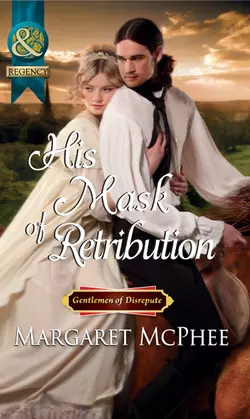His Mask of Retribution

Margaret McPhee
Тип: электронная книга
Жанр: Современная зарубежная литература
Язык: на английском языке
Стоимость: 386.29 ₽
Статус: В продаже
Издательство: HarperCollins
Дата публикации: 16.04.2024
Отзывы: Пока нет Добавить отзыв
О книге: THE LAST MAN SHE COULD EVER LOVE…Beautiful Marianne Winslow has had her share of suitors – and her share of scandal. Three engagements, no wedding… And the ton are beginning to talk. Smouldering Rafe Knight has lived the last fifteen years of his life with one goal: avenging the death of his parents. His final target? The Earl of Misbourne. The perfect bartering tool? The Earl’s daughter, Marianne…Held at gunpoint on Hounslow Heath, Marianne is taken captive by a mysterious masked highwayman. Her father must pay the price – but Marianne finds more than vengeance in the highwayman’s warm amber eyes…Gentlemen of Disrepute Rebellious rule-breakers, ready to wed!